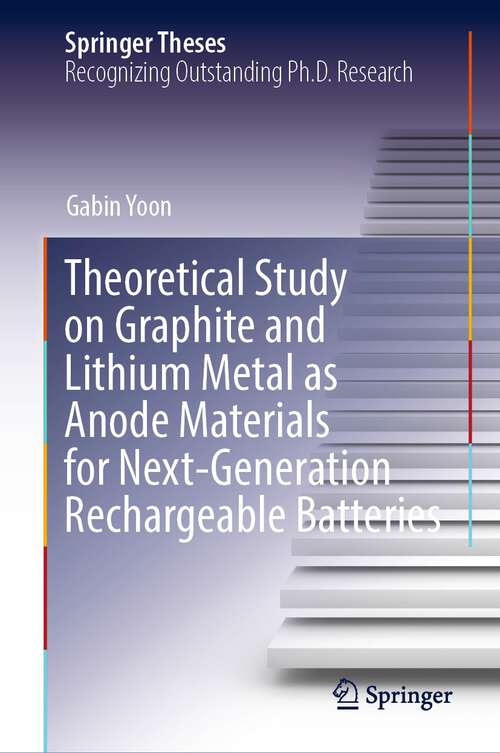Theoretical Study on Graphite and Lithium Metal as Anode Materials for Next-Generation Rechargeable Batteries (1st ed. 2022) (Springer Theses)
By:
Sign Up Now!
Already a Member? Log In
You must be logged into Bookshare to access this title.
Learn about membership options,
or view our freely available titles.
- Synopsis
- This thesis describes in-depth theoretical efforts to understand the reaction mechanism of graphite and lithium metal as anodes for next-generation rechargeable batteries. The first part deals with Na intercalation chemistry in graphite, whose understanding is crucial for utilizing graphite as an anode for Na-ion batteries. The author demonstrates that Na ion intercalation in graphite is thermodynamically unstable because of the unfavorable Na-graphene interaction. To address this issue, the inclusion of screening moieties, such as solvents, is suggested and proven to enable reversible Na-solvent cointercalation in graphite. Furthermore, the author provides the correlation between the intercalation behavior and the properties of solvents, suggesting a general strategy to tailor the electrochemical intercalation chemistry. The second part addresses the Li dendrite growth issue, which is preventing practical application of Li metal anodes. A continuum mechanics study considering various experimental conditions reveals the origins of irregular growth of Li metal. The findings provide crucial clues for developing effective counter strategies to control the Li metal growth, which will advance the application of high-energy-density Li metal anodes.
- Copyright:
- 2022
Book Details
- Book Quality:
- Publisher Quality
- ISBN-13:
- 9789811389146
- Related ISBNs:
- 9789811389139
- Publisher:
- Springer Nature Singapore
- Date of Addition:
- 08/09/22
- Copyrighted By:
- Springer Nature Singapore Pte Ltd.
- Adult content:
- No
- Language:
- English
- Has Image Descriptions:
- No
- Categories:
- Nonfiction, Science, Technology
- Submitted By:
- Bookshare Staff
- Usage Restrictions:
- This is a copyrighted book.
